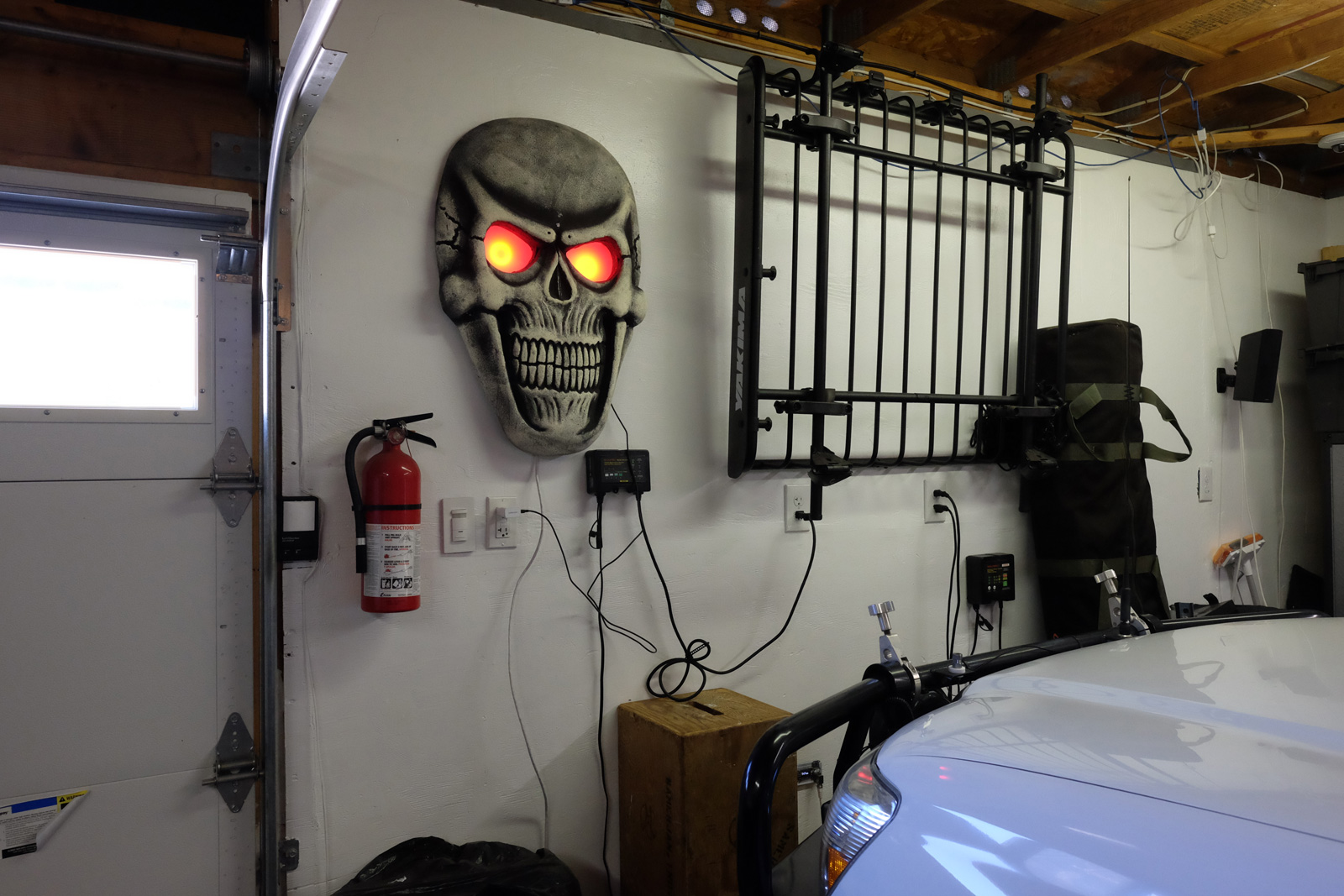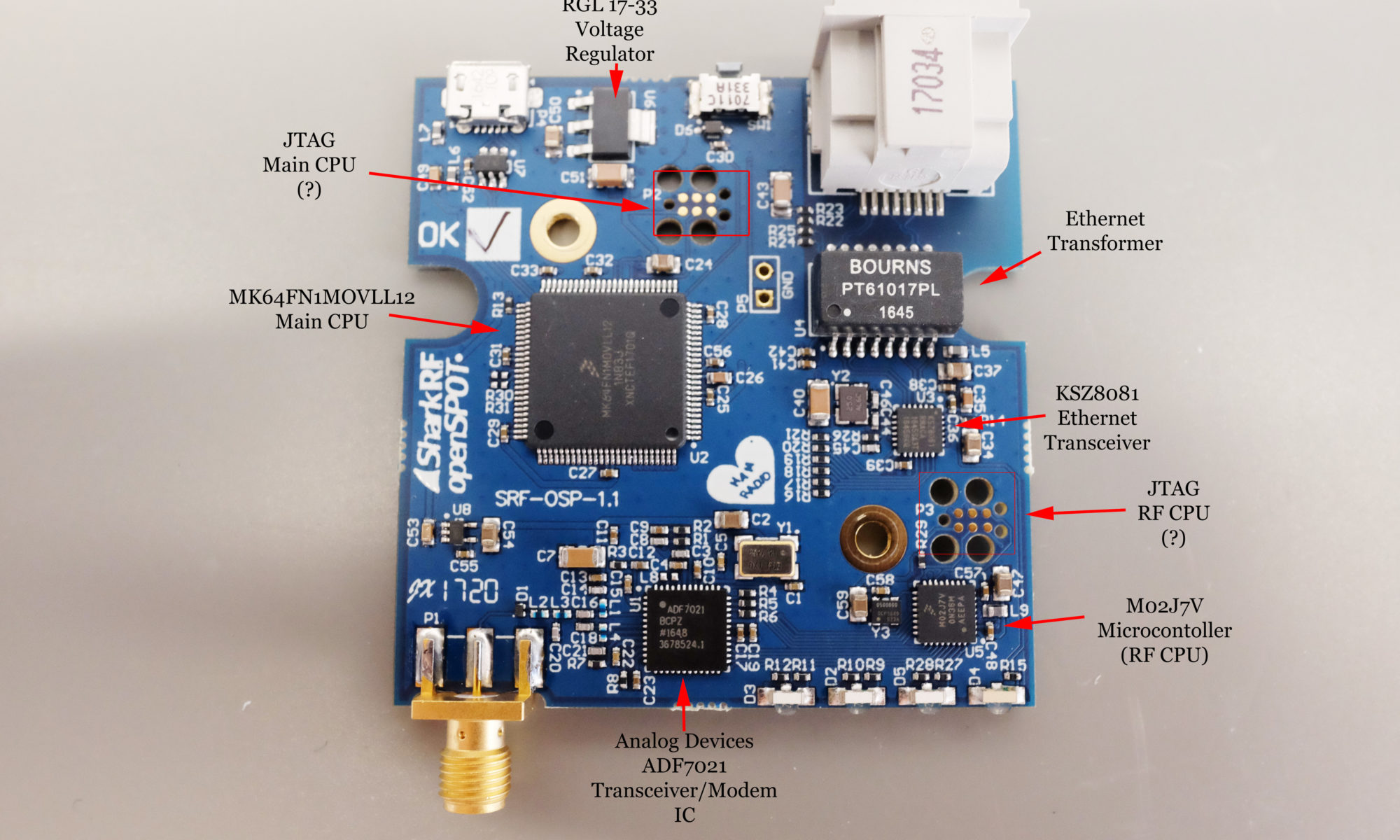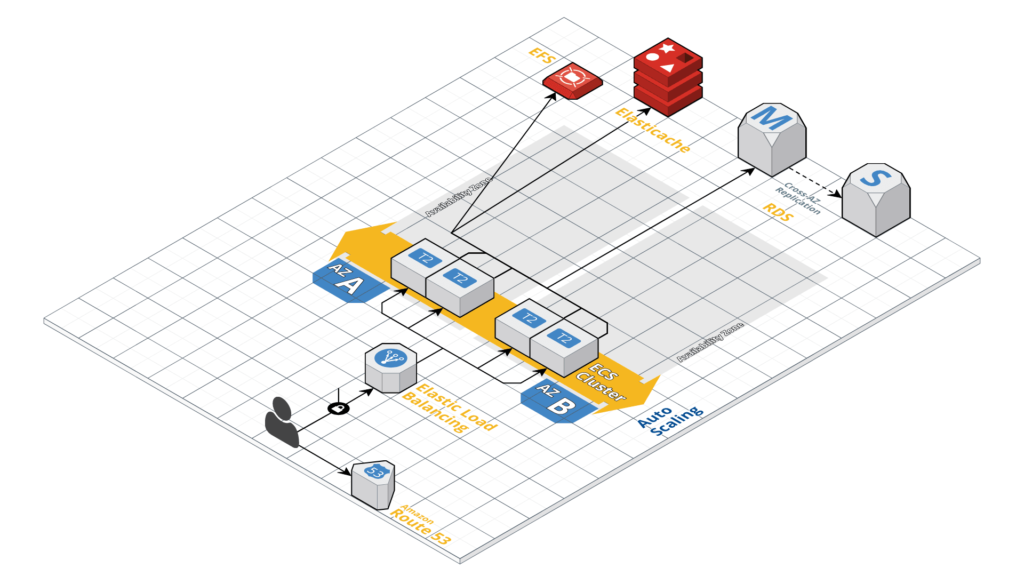Intro
Ever since I outfitted my truck for the Zombie Apocalypse, parking it in my garage is something of a pain. The front and rear bumpers have lengthened the wheelbase so I only have a few inches of margin – if I drive in too far I’ll hit the front wall, and if I don’t drive in far enough the garage door will hit the spare tire and refuse to close.
For years I put up with this until the hassle overcame my laziness factor. I could have hung a tennis ball from the ceiling, but I’ve got a pretty cool garage “man cave” and a dangling tennis ball isn’t cool. Plus, I’ve got some geek cred I need to maintain, I can build it myself, and more importantly maybe this can teach/inspire someone else along the way.
I’ve organized this into a two part series. Part one will give you some background info, instructions on bread-boarding (prototyping) the circuit, and getting the software flashed to the circuit. Additionally, I’ll point out some of the more important details in the software and give reasons why this was done.
While you might see some of the electronic equipment on my bench, don’t let that stop you. All you need is a multimeter, and you don’t really need that unless stuff goes whacko. Start with a simple breadboard and hookup wire. If you decide to make this more permanent, I’ve included links to “perma-proto” boards. These look just like the breadboard you are using, but you can solder stuff to them. Continue reading “Garage Parking Assist – Part One”





